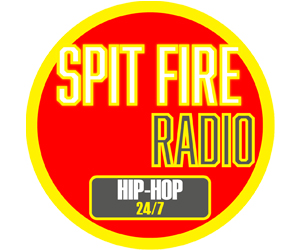 According to Epidemic Sound CEO Oscar Höglund, his (alleged) ‘fake artists’ on Spotify earn five-digit pound sums for their works.
According to Epidemic Sound CEO Oscar Höglund, his (alleged) ‘fake artists’ on Spotify earn five-digit pound sums for their works.
So, does Spotify create ‘fake artists’ to avoid paying real ones?
According to the streaming platform, of course not.  Blasting the original Music Business Worldwide articlehighlighting the deceitful practice (and subsequent follow-ups), a Spotify spokesperson said,
“We do not and have never created ‘fake’ artists and put them on Spotify playlists. Categorically untrue, full stop. We pay royalties — sound and publishing — for all tracks on Spotify, and for everything we playlist. We do not own rights, we’re not a label, and all our music is licensed from rightsholders and we pay them — we don’t pay ourselves.â€
Epidemic Sound was one of the companies accused of providing tracks on the popular music platform.  With tracks produced by ‘fake artists,’ the music production company allegedly helped Spotify avoid licensing fees and royalty payouts to major labels and other copyright owners.
Epidemic Sound CEO Oscar Höglund categorically denied the accusations. In an interview with Musically, he said 400,000 YouTubers use the company’s music.
“We got in contact with all of the streaming services, and the one that was quickest was Spotify.  There was nothing exclusive about it: they were just fast, and we uploaded our music.  No special deal, no back door, no nothing.  We just uploaded our music.â€
Spotify’s in-house curators would later use the music production company’s tracks in mood playlists.  This would boost overall plays for the company, making the streaming platform an exclusive B2B client for Epidemic Sound.
Höglund explained,
“We saw that 20 billion views a month is quite significant… the number one comment across these hundreds of thousands of YouTube channels, from PewDiePie all the way down to the smallest, was ‘I love the music you’re using, where can I find it?  Why can’t I find it on SoundCloud?  Why can’t I find it on Spotify?  I can’t find it anywhere, what’s up with this music?’â€
Epidemic Sound came under heavy fire after Music Business Worldwide published their investigation over Spotify’s ‘fake artist’ problem earlier this year.  Höglund added that he remains baffled over the entire controversy, as his company doesn’t rely only on Spotify.
“In our mind, [the ‘fake artist’ controversy] added to the confusion and frustration, because we were everything but fake.  We were the other way around:  we were putting the music out there immediately and saying ‘this is what it is.
“I can tell you that they’ve never, ever commissioned a track from us.â€
Höglund said that the company’s alleged ‘fake artists’ are real composers who make a living from the tracks.  His company pays composers an up-front fee for 100% of the rights. Which is actually a better deal than most ‘real’ composers receive. But of course, it’s all people — only the names have been withheld.
“When we use music in an audio-visual context, we look at the average usage of music and we pay all that up front. So we will pay you £1,500 or £2,000 for the assumption of how much this will get used.  And then we added streaming and said let’s add 50/50 on top of that.
“So you get paid twice, and 50/50 is obviously uncapped, so if the music does really well, you do really well.  We now have many composers who make five-digit pound amounts of money every single month.â€
Höglund added that Epidemic Sound provides “an ecosystem that works in a ‘pennies business’ as opposed to a dollars business.â€Â His company provides new content “on a new premise,†which music fans apparently have looked for. This explain Epidemic Sound’s success over “legacy content†from major music labels on Spotify.
“We don’t have any legacy. We’ve come from a new world, and we’re creating a new premise for how we think it should work. We’re utilizing all the latest technological advances and services out there to make something super-efficient in terms of getting music out there, and getting people paid. If you compare that to the old world, it’s like night and day. Â
“And there is nothing fake about it.â€
Source: Digital Music News









